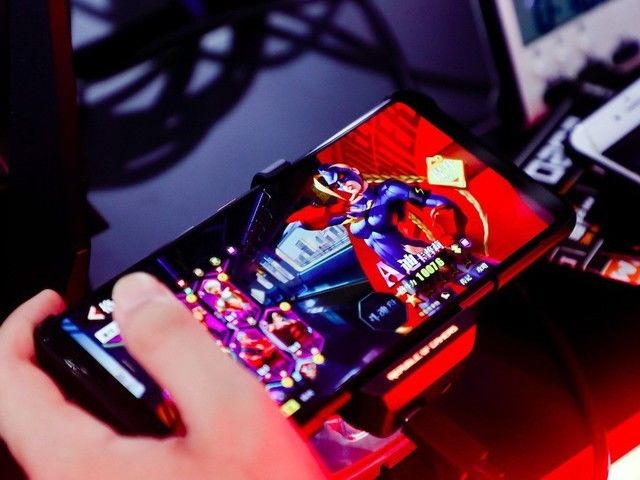жө…жһҗiOSдәӢ件зҡ„е“Қеә”еҸҠдј йҖ’

ж–Үз« еӣҫзүҮ
Responder Chain е“Қеә”иҖ…Responders
иҜҙеҲ°дәӢ件пјҢдёҚеҫ—дёҚд»ҺUIResponderиҜҙиө·пјӣ
UIResponderжҳҜз”ЁдәҺе“Қеә”е’ҢеӨ„зҗҶдәӢ件зҡ„жҠҪиұЎжҺҘеҸЈпјҢUIResponderзҡ„е®һдҫӢжһ„жҲҗдәҶUIKitзҡ„дәӢ件еӨ„зҗҶдё»е№ІпјҢи®ёеӨҡUIKitзұ»д№ҹйғҪжҳҜ继жүҝиҮӘUIResponderпјҢеҢ…жӢ¬UIApplication, UIViewControllerд»ҘеҸҠUIView(еҢ…жӢ¬UIWindow)пјҢе®ғ们зҡ„е®һдҫӢйғҪжҳҜе“Қеә”иҖ…пјҡпјҲеҜ№з”ЁжҲ·дәӨдә’еҠЁдҪңдәӢ件иҝӣиЎҢе“Қеә”зҡ„еҜ№иұЎпјүпјҢеҪ“дәӢ件еҸ‘з”ҹж—¶пјҢUIKitе°Ҷе®ғ们еҲҶжҙҫеҲ°еә”з”Ёзҡ„responderеҜ№иұЎдёӯиҝӣиЎҢеӨ„зҗҶгҖӮ

ж–Үз« еӣҫзүҮ
UIзұ»зҡ„е…ізі» UIResponderе“Қеә”зҡ„дәӢ件жңүд»ҘдёӢеҮ з§Қпјҡ
- touch events
- (void)touchesBegan:(NSSet *)touches withEvent:(nullable UIEvent *)event;
- (void)touchesMoved:(NSSet *)touches withEvent:(nullable UIEvent *)event;
- (void)touchesEnded:(NSSet *)touches withEvent:(nullable UIEvent *)event;
- (void)touchesCancelled:(NSSet *)touches withEvent:(nullable UIEvent *)event;
- (void)touchesEstimatedPropertiesUpdated:(NSSet *)touches NS_AVAILABLE_IOS(9_1);
- motion events
- (void)motionBegan:(UIEventSubtype)motion withEvent:(nullable UIEvent *)event NS_AVAILABLE_IOS(3_0);
- (void)motionEnded:(UIEventSubtype)motion withEvent:(nullable UIEvent *)event NS_AVAILABLE_IOS(3_0);
- (void)motionCancelled:(UIEventSubtype)motion withEvent:(nullable UIEvent *)event NS_AVAILABLE_IOS(3_0);
- remote-control events
- (void)remoteControlReceivedWithEvent:(nullable UIEvent *)event NS_AVAILABLE_IOS(4_0);
- press events
- (void)pressesBegan:(NSSet *)presses withEvent:(nullable UIPressesEvent *)event NS_AVAILABLE_IOS(9_0);
- (void)pressesChanged:(NSSet *)presses withEvent:(nullable UIPressesEvent *)event NS_AVAILABLE_IOS(9_0);
- (void)pressesEnded:(NSSet *)presses withEvent:(nullable UIPressesEvent *)event NS_AVAILABLE_IOS(9_0);
- (void)pressesCancelled:(NSSet *)presses withEvent:(nullable UIPressesEvent *)event NS_AVAILABLE_IOS(9_0);
е“Қеә”иҖ…й“ҫResponder Chain з”ұеӨҡдёӘе“Қеә”иҖ…з»„еҗҲиө·жқҘзҡ„й“ҫжқЎпјҢе°ұжҳҜ
е“Қеә”иҖ…й“ҫгҖӮе®ғиЎЁзӨәдәҶжҜҸдёӘе“Қеә”иҖ…д№Ӣй—ҙзҡ„иҒ”зі»пјҢ并且еҸҜд»ҘдҪҝеҫ—дёҖдёӘдәӢ件еҸҜйҖүжӢ©еӨҡдёӘеҜ№иұЎеӨ„зҗҶгҖӮUIResponderжңүnextResponderж–№жі•пјҢиҝ”еӣһе“Қеә”й“ҫзҡ„дёӢдёҖдёӘе“Қеә”иҖ…пјӣдёҖиҲ¬зҡ„пјҢе“Қеә”иҖ…зҡ„дёӢдёӘе“Қеә”иҖ…жҳҜе®ғзҡ„зҲ¶и§ҶеӣҫпјҲеҰӮжһңе“Қеә”иҖ…жҳҜUIViewControllerзҡ„viewпјҢиҝҷдёӘе“Қеә”иҖ…зҡ„дёӢдёӘе“Қеә”иҖ…жҳҜUIViewControllerпјүгҖӮеҪ“然жҲ‘们д№ҹеҸҜд»ҘйҮҚеҶҷnextResponderж–№жі•жқҘжҢҮе®ҡдёӢдёӘе“Қеә”иҖ…гҖӮе®ҳж–№ж–ҮжЎЈдёҫдәҶдёӘйҖҡдҝ—жҳ“жҮӮзҡ„дҫӢеӯҗжқҘжҸҸиҝ°е“Қеә”иҖ…й“ҫпјҡ

ж–Үз« еӣҫзүҮ
Responder Chain
еҰӮжһңtext fieldжІЎжңүеӨ„зҗҶдәӢ件пјҢUIKitдјҡе°ҶдәӢ件еҸ‘йҖҒз»ҷtext fieldзҡ„зҲ¶и§ҶеӣҫUIViewеҜ№иұЎпјҢеҰӮжһңUIViewеҜ№иұЎжІЎжңүеӨ„зҗҶдәӢ件пјҢдәӢ件дјҡиў«еҸ‘йҖҒз»ҷUIViewControllerзҡ„ж №и§Ҷеӣҫпјӣд№ӢеҗҺдәӢ件дјҡдҫқж¬Ўдј йҖ’еҲ°ж №и§ҶеӣҫдёӢдёӘе“Қеә”иҖ…еҚіи§ҶеӣҫжүҖеұһзҡ„и§ҶеӣҫжҺ§еҲ¶еҷЁпјҢ然еҗҺжҳҜUIWindowеҜ№иұЎпјҢ然еҗҺжҳҜUIApplicationеҜ№иұЎпјҢеҰӮжһңиҜҘеҜ№иұЎжҳҜUIResponderзҡ„дёҖдёӘе®һдҫӢ并且дёҚжҳҜе“Қеә”иҖ…й“ҫзҡ„дёҖйғЁеҲҶпјҢеҸҜиғҪдјҡдј йҖ’з»ҷAppDelegateгҖӮдҪҝз”Ёtouch eventsжқҘйӘҢиҜҒдёӢпјҡ

ж–Үз« еӣҫзүҮ
red viewControllerе’ҢredViewйғҪеҠ дёҠtouch event
// viewController
- (void)touchesBegan:(NSSet *)touches withEvent:(UIEvent *)event {
NSLog(@"%s",__func__);
}// redView
- (void)touchesBegan:(NSSet *)touches withEvent:(UIEvent *)event {
NSLog(@"%s",__func__);
}
еҪ“зӮ№еҮ»зәўиүІviewж—¶пјҢеҫҲжҳҫ然еҸӘжңүзәўиүІviewе“Қеә”дәӢ件гҖӮжіЁйҮҠredViewдёӯtouchж–№жі•еҗҺпјҢзӮ№еҮ»зәўиүІviewж—¶viewControllerзҡ„touchesBeganдәӢ件и§ҰеҸ‘дәҶгҖӮеҰӮдҪ•и®©viewControllerе’ҢredViewйғҪиғҪе“Қеә”иҝҷдёӘtouchдәӢ件呢пјҢеҸҜд»ҘеңЁredViewдёӯдё»еҠЁдј йҖ’з»ҷдёӢдёӘе“Қеә”иҖ…пјҡ
// redView
- (void)touchesBegan:(NSSet *)touches withEvent:(UIEvent *)event {
[self.nextResponder touchesBegan:touches withEvent:event];
// жҲ–иҖ…[super touchesBegan:touches withEvent:event];
NSLog(@"%s",__func__);
}
Hit-Test жңәеҲ¶ еҪ“дёҖдёӘtouch eventsдә§з”ҹзҡ„ж—¶еҖҷпјҢзі»з»ҹжҳҜеҰӮдҪ•жүҫеҲ°з¬¬дёҖе“Қеә”иҖ…(еҚіжңҖйҖӮеҗҲеӨ„зҗҶиҝҷдёӘдәӢ件зҡ„еҜ№иұЎ)зҡ„е‘ўпјҹиҝҷйҮҢе°ұжҳҜдҪҝз”ЁдәҶHit-Test жңәеҲ¶пјҡ
Hit-Testжңүе…ізҡ„дёӨдёӘж–№жі•пјҡ
- (nullable UIView *)hitTest:(CGPoint)point withEvent:(nullable UIEvent *)event;
// recursively calls -pointInside:withEvent:. point is in the receiver's coordinate system
- (BOOL)pointInside:(CGPoint)point withEvent:(nullable UIEvent *)event;
// default returns YES if point is in bounds
- еҪ“дә§з”ҹдёҖдёӘtouchдәӢ件пјҢRunloopдјҡжҺҘ收еҲ°дәӢ件并жҠҠе…¶еҠ е…ҘUIApplicationдәӢ件йҳҹеҲ—йҮҢпјӣ
- UIApplicationд»ҺдәӢ件йҳҹеҲ—дёӯеҸ–еҮәжңҖж–°зҡ„дәӢ件иҝӣиЎҢеҲҶеҸ‘дј йҖ’з»ҷUIWindowиҝӣиЎҢеӨ„зҗҶпјӣ
- UIWindowдјҡи°ғз”ЁhitTest:withEvent:ж–№жі•еңЁи§ҶеӣҫеұӮж¬Ўз»“жһ„дёӯжүҫеҲ°дёҖдёӘжңҖеҗҲйҖӮзҡ„UIViewжқҘеӨ„зҗҶиҝҷдёӘдәӢ件пјӣеҲҶеҸ‘зҡ„йЎәеәҸе’Ңе“Қеә”й“ҫеҹәжң¬зӣёеҸҚпјҡUIApplication -> UIWindow -> Root View -> В·В·В· -> subviewпјҡ
- hitTest:withEvent:ж–№жі•дјҡи°ғз”ЁеҪ“еүҚи§Ҷеӣҫзҡ„pointInside:withEvent:ж–№жі•еҲӨж–ӯи§Ұж‘ёзӮ№жҳҜеҗҰеңЁеҪ“еүҚи§ҶеӣҫеҶ…пјӣ
- иӢҘpointInside:withEvent:ж–№жі•иҝ”еӣһNOпјҢиҜҙжҳҺи§Ұж‘ёзӮ№дёҚеңЁеҪ“еүҚи§ҶеӣҫеҶ…пјҢеҲҷеҪ“еүҚи§Ҷеӣҫзҡ„hitTest:withEvent:иҝ”еӣһnilпјӣ
- иӢҘpointInside:withEvent:ж–№жі•иҝ”еӣһYESпјҢиҜҙжҳҺи§Ұж‘ёзӮ№еңЁеҪ“еүҚи§ҶеӣҫеҶ…пјҢеҲҷйҒҚеҺҶеҪ“еүҚи§Ҷеӣҫзҡ„жүҖжңүеӯҗи§Ҷеӣҫ(subviews)пјҢи°ғз”Ёеӯҗи§Ҷеӣҫзҡ„hitTest:withEvent:ж–№жі•пјҲеӯҗи§ҶеӣҫйҮҚеӨҚеҗҢж ·зҡ„жӯҘйӘӨпјүпјҢеӯҗи§Ҷеӣҫзҡ„йҒҚеҺҶйЎәеәҸжҳҜж Ҳзҡ„еҪўејҸпјҢеҚід»ҺжңҖеҗҺйқўж·»еҠ зҡ„еӯҗи§ҶеӣҫиҮіжңҖж—©ж·»еҠ зҡ„еӯҗи§ҶеӣҫпјҢзӣҙеҲ°жңүеӯҗи§Ҷеӣҫзҡ„hitTest:withEvent:ж–№жі•иҝ”еӣһйқһз©әеҜ№иұЎжҲ–иҖ…е…ЁйғЁеӯҗи§ҶеӣҫйҒҚеҺҶе®ҢжҜ•пјӣ
- иӢҘжңүеӯҗи§Ҷеӣҫзҡ„hitTest:withEvent:ж–№жі•иҝ”еӣһйқһз©әеҜ№иұЎпјҲ第дёҖе“Қеә”еҜ№иұЎдёәеӯҗи§ҶеӣҫпјүпјҢеҲҷеҪ“еүҚи§Ҷеӣҫзҡ„hitTest:withEvent:ж–№жі•е°ұиҝ”еӣһжӯӨеҜ№иұЎпјҢеӨ„зҗҶз»“жқҹпјӣ
- иӢҘжүҖжңүеӯҗи§Ҷеӣҫзҡ„hitTest:withEvent:ж–№жі•йғҪиҝ”еӣһnilпјҲи§Ұж‘ёзӮ№дёҚеңЁеӯҗи§ҶеӣҫдёҠпјүпјҢеҲҷеҪ“еүҚи§Ҷеӣҫзҡ„hitTest:withEvent:ж–№жі•иҝ”еӣһеҪ“еүҚи§Ҷеӣҫselfпјӣ

ж–Үз« еӣҫзүҮ
subviews еңЁд№ӢеүҚзҡ„redViewдёҠж·»еҠ дәҶ2дёӘsubviews:blueViewе’ҢyellowViewпјӣиҝҷдёүдёӘviewеҲҶеҲ«йҮҚеҶҷhitTest:withEvent:е’ҢpointInside:withEvent:ж–№жі•
- (UIView *)hitTest:(CGPoint)point withEvent:(UIEvent *)event {
NSLog(@"%@ start hit",[self class]);
UIView *view = [super hitTest:point withEvent:event];
NSLog(@"%@ hitView:%@",[self class],[view class]);
return view;
}- (BOOL)pointInside:(CGPoint)point withEvent:(UIEvent *)event {
BOOL inside = [super pointInside:point withEvent:event];
NSLog(@"%@ pointInside:%@",[self class],inside ? @"YES" : @"NO");
return inside;
}
йҰ–е…ҲпјҢзӮ№еҮ»yellowViewпјҢиҫ“еҮәlogеҰӮдёӢпјҡ
RedView start hitз»“жһңдёҚйҮҚиҰҒпјҢйҮҚиҰҒзҡ„жҳҜиҝҮзЁӢпјҢжҲ‘们жқҘеҲҶжһҗдёӢиҝҷдёӘиҝҮзЁӢпјҡ
RedView pointInside:YES
YellowView start hit
YellowView pointInside:YES
YellowView hitView:YellowView
- redViewжҳҜзҲ¶и§ҶеӣҫпјҢйҰ–е…Ҳдјҡи°ғз”ЁredViewзҡ„hitTest:withEvent:ж–№жі•пјҢеңЁиҺ·еҸ–hitViewзҡ„ж—¶еҖҷдјҡи°ғз”ЁpointInside:withEvent:ж–№жі•еҲӨж–ӯзӮ№еҮ»зҡ„pointжҳҜеҗҰеңЁеҪ“еүҚи§ҶеӣҫframeеҶ…пјӣ
- pointInside:withEvent:иҝ”еӣһYESпјҢеҲҷдҫқж¬ЎеҲҶеҸ‘з»ҷredViewзҡ„еӯҗи§Ҷеӣҫпјӣз”ұдәҺyellowViewжҳҜеҗҺйқўж·»еҠ зҡ„пјҢдјҡе…ҲеҲҶеҸ‘з»ҷyellowViewи°ғз”ЁhitTest:withEvent:гҖӮ
- е’Ңд№ӢеүҚredViewеҗҢж ·зҡ„жөҒзЁӢпјҢyellowViewеҲӨж–ӯеҗҺpointеңЁеҪ“еүҚи§ҶеӣҫframeеҶ…пјҢз”ұдәҺyellowViewжІЎжңүеӯҗи§ҶеӣҫеҲҶеҸ‘з»“жқҹпјӣhitTest:withEvent:иҝ”еӣһyellowViewеҜ№иұЎ,д№ҹеҚіиҝҷдёӘдәӢ件жүҫеҲ°дәҶ第дёҖе“Қеә”иҖ…yellowViewпјӣ然еҗҺзҲ¶и§ҶеӣҫredViewзҡ„hitTest:withEvent:д№ҹиҝ”еӣһyellowViewеҜ№иұЎпјӣ

ж–Үз« еӣҫзүҮ
дәӢ件жөҒзЁӢ е®һйҷ…еә”з”Ё д»ҘдёҠзҹҘиҜҶпјҢеңЁе®һйҷ…ејҖеҸ‘дёӯжңүд»Җд№Ҳз”ЁйҖ”е‘ўпјҹ
- йҖҡиҝҮnextResponserж–№жі•е®һзҺ°и§ЈиҖҰпјҡ
йңҖжұӮпјҡеңЁиҮӘе®ҡд№үUIViewдёӯиҺ·еҸ–ViewControllerеҜ№иұЎпјӣдёҖиҲ¬зҡ„еҒҡжі•жҳҜеңЁиҮӘе®ҡд№үViewдёӯеЈ°жҳҺ并引用ViewControllerеҜ№иұЎпјҢдҪҶиҝҷж ·еҒҡиҖҰеҗҲжҖ§й«ҳдәҶгҖӮеҸҜд»ҘдҪҝз”ЁnextResponserиҺ·еҸ–пјҡ
@implementation UIView (Tool)- (UIViewController *)hh_viewController {
UIResponder *rp = [self nextResponder];
while (rp) {
if ([rp isKindOfClass:[UIViewController class]]) {
return (UIViewController *)rp;
}
rp = [rp nextResponder];
}
return nil;
}@end
- йҮҚеҶҷhitTest:withEvent:жҲ–pointInside:withEvent:ж–№жі•пјҢи§ЈеҶіжҹҗдәӣдәӢ件дёҚиғҪе“Қеә”зҡ„жғ…еҶөпјҡ
жҺ§д»¶дёҚиғҪе“Қеә”дәӢ件пјҢдёҖиҲ¬жңүеҰӮдёӢжғ…еҶөпјҡ
1.userInteractionEnabled = NOпјҲиҝҷд№ҹжҳҜUIImageViewжҺ§д»¶еҸҠе…¶еӯҗи§ҶеӣҫдёҚиғҪе“Қеә”дәӢ件зҡ„еҺҹеӣ пјүйЎ№зӣ®дёӯдёҖдёӘеёёи§Ғзҡ„йңҖжұӮе°ұжҳҜи®©и¶…еҮәзҲ¶и§ҶеӣҫиҢғеӣҙзҡ„еӯҗи§Ҷеӣҫд№ҹиғҪе“Қеә”дәӢ件пјҢжҜ”еҰӮTableBarдёӯзӘҒеҮәзҡ„жҢүй’®пјӣзҺ°еңЁз®ҖеҚ•жЁЎжӢҹдёҖдёӢиҝҷз§Қжғ…еҶөпјҡ
2.hidden = YES
3.alphaе°ҸдәҺзӯүдәҺ0.01
4.еӯҗи§Ҷеӣҫи¶…еҮәдәҶзҲ¶и§Ҷеӣҫframe

ж–Үз« еӣҫзүҮ
HEH гҖҗжө…жһҗiOSдәӢ件зҡ„е“Қеә”еҸҠдј йҖ’гҖ‘blueViewжҳҜredViewзҡ„subviewпјҢ并且жңүдёҖеҚҠе·Іи¶…еҮәзҲ¶и§ҶеӣҫиҢғеӣҙпјӣиҝҷж—¶зӮ№еҮ»blueViewзҡ„дёҠеҚҠйғЁеҲҶпјҢиӮҜе®ҡжІЎжңүд»»дҪ•еҸҚеә”пјӣиҝҷжҳҜеӣ дёәзҲ¶и§Ҷеӣҫзҡ„pointInside:withEvent:ж–№жі•иҝ”еӣһдәҶNOпјҢе°ұдёҚдјҡйҒҚеҺҶеӯҗи§ҶеӣҫдәҶгҖӮеҸҜд»ҘйҮҚеҶҷredViewзҡ„pointInside:withEvent:ж–№жі•и§ЈеҶіжӯӨй—®йўҳгҖӮ
- (BOOL)pointInside:(CGPoint)point withEvent:(UIEvent *)event {
BOOL inside = [super pointInside:point withEvent:event];
if (!inside) {
UIView *subview = self.subviews[0];
CGRect subRect = subview.frame;
if (CGRectContainsPoint(subRect, point)) {
inside = YES;
}
}
return inside;
}
жҺЁиҚҗйҳ…иҜ»
- 2020-04-07vueдёӯAxiosзҡ„е°ҒиЈ…е’ҢAPIжҺҘеҸЈзҡ„з®ЎзҗҶ
- дәӢ件代зҗҶ
- дәӢ件еӨ„зҗҶзЁӢеәҸ
- iOSдёӯзҡ„Block
- AndroidдәӢд»¶дј йҖ’жәҗз ҒеҲҶжһҗ
- и®°еҪ•iOSз”ҹжҲҗеҲҶдә«еӣҫзүҮзҡ„дёҖдәӣй—®йўҳпјҢж №жҚ®UIViewз”ҹжҲҗеӣәе®ҡе°әеҜёзҡ„еҲҶдә«еӣҫзүҮ
- 66дёҮеҘ”й©°жјҸжІ№дәӢ件зңӢе®қе®қж— зҗҶеҸ–й—№
- гҖҢжҲ‘зҡ„2017гҖҚвҖ”вҖ”2017|гҖҢжҲ‘зҡ„2017гҖҚвҖ”вҖ”2017,еӨ§дәӢ件зӣҳзӮ№
- 2019-08-29|2019-08-29 iOS13йҖӮй…ҚйӮЈзӮ№дәӢ
- Hacking|Hacking with iOS: SwiftUI Edition - SnowSeeker йЎ№зӣ®пјҲдёҖпјү













